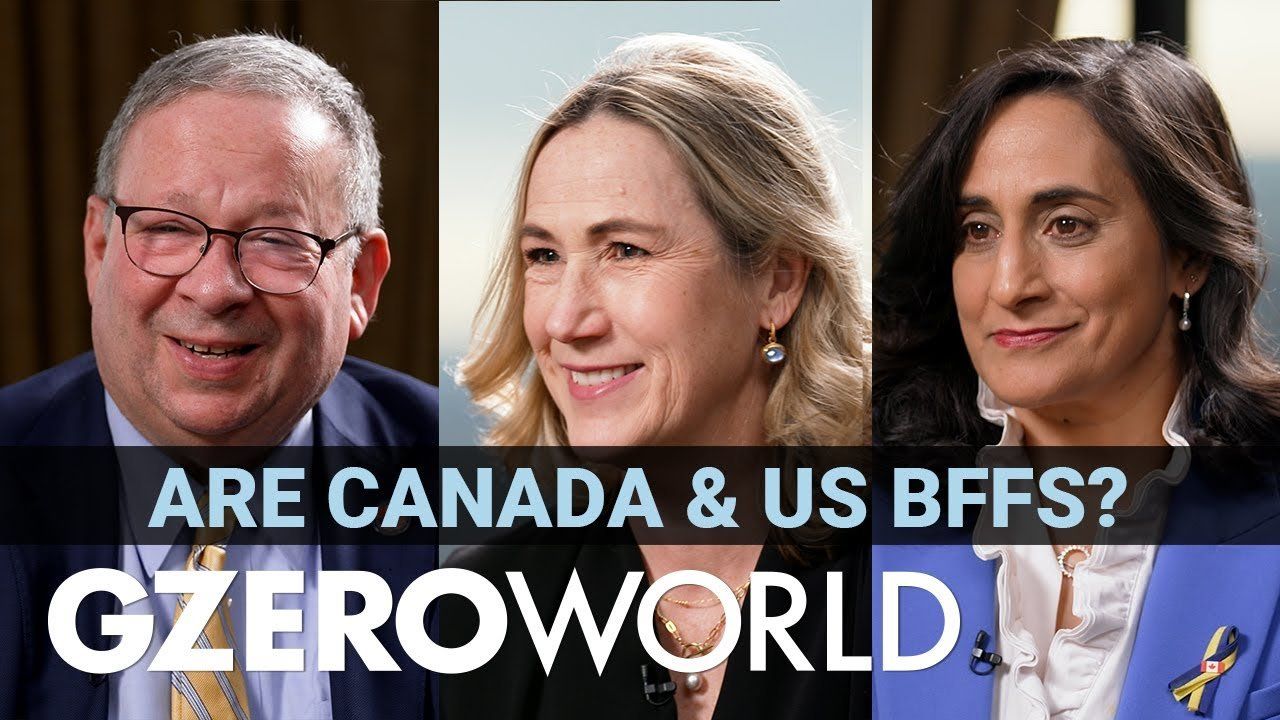
US President Joe Biden and Canadian Prime Minister Justin Trudeau finally had their COVID-delayed summit in March 2023. Biden and Trudeau clearly get along, and US-Canada ties are as strong as ever. Yet, some thorny issues still need to be ironed out.
The two neighbors see eye-to-eye on things like immigration or pushing back against China and Russia. But there's friction on Haiti and especially on the US Inflation Reduction Act, whose subsidies are wooing Canadian green biz south of the border.
On GZERO World, Ian Bremmer discusses the bilateral relationship with David Cohen, the US ambassador to Canada, and Kirsten Hillman, Canada's Ambassador in Washington. Then, Ian asks Canadian Defense Minister Anita Anand why she won't let her kids use TikTok (amongst other pressing national security questions).
- Is the US exporting its toxic politics to Canada? ›
- Podcast: How healthy is the US-Canada relationship? ›
- US-Canada can and will extract critical minerals sustainably, says top US diplomat ›
- Will US-Canada border deal mean riskier future for migrants? ›
- US green subsidies pushback to dominate Biden's Canada trip ›
- Ian Explains: Biden-Trudeau summit well worth the wait - GZERO Media ›